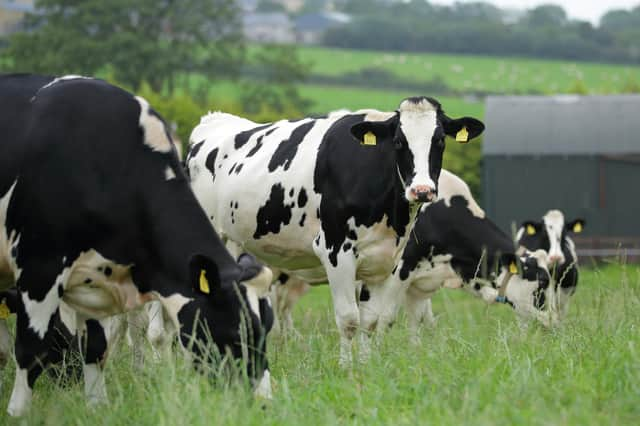Survey confirms the many challenges farmers in Northern Ireland are facing


The conclusions arrived at were derived from the 400 farmer-responses received.
While the quantity of silage made is slightly above average, of those who have analysed forages up to this point, 56% are reporting silage quality values below or well below average.
Advertisement
Advertisement
Thus farmers will need to feed more meal to achieve similar levels of performance to previous years.
This comes at a time when meal prices are high and when asked their intentions for the coming winter 46% of beef and sheep farmers said they intend to feed less concentrate.
Only 11% of dairy farmers intend to feed less concentrate but a further 31% are still to decide.
To date only 20% of farmers have completed a fodder plan for the coming winter.
Advertisement
Advertisement
Results from the survey also indicate that there is unlikely to be a large flush of extra stores on the market, however 30% of beef and sheep farmers did indicate that they would be keeping less stock this winter (primarily through a combination of culling cows and reducing livestock purchases).
On balance, the survey results indicate that there is unlikely to be a significant change in the number of dairy cows kept this winter.
Regarding fertiliser usage, 76% of farmers taking part in the survey sowed less this year.
While most farmers have reported reasonable grass growth there is considerable regional variation with 78% of farmers in County Down saying they were affected by the dry weather this summer.
Most farmers are on top of their feed and fertiliser bills.
Advertisement
Advertisement
However 53% of farmers say they are intending to devote more of their ‘single payment’ monies to clear their feed and fertiliser bills than normal.
Notably 27% of respondents say they are either under pressure financially or have been refused finance. Only 24% of farmers have completed a cash flow forecast.
There is significant interest in forward buying fertiliser with only 30% of farmers ruling it out.
Turn to page 7
Farmers have also indicated that there are likely to be modest increases in the acreage of cereals planted in the coming season.
Advertisement
Advertisement
The increase in fertiliser prices has seen farmers place a higher value on organic manures with 80% saying they made better use of slurry this year.
This was achieved by targeting application on low index fields and through Low Emission Slurry Spreading Equipment (LESSE) application. In addition 15% of farmers said they had slurry analysed.
With manufactured fertiliser predicted to remain expensive, many farmers have expressed an interest in making changes to reduce their reliance on purchased fertiliser. Significantly, 62% expressed an interest in stitching in clover, 56% in establishing multi-species swards and 49% expressed an interest in drawing up a nutrient management plan for their farm.
AgriSearch General Manager Jason Rankin said: “Silage stocks are better than expected on most farms.
Advertisement
Advertisement
“But due to difficult weather conditions around first cut, particularly in the west, many farmers will be managing their livestock with silage of below average quality.
“This is at a time when the cost of purchased feed is very high.”
He added: “I would encourage all farmers to take time to plan their winter feeding and cash-flow requirements for the coming winter to allow for any remedial action to be taken in good time.”
Ulster Farmers’ Union president David Brown commented: “This year has been one of many challenges for our members. Farmers are facing added financial pressure as interest rates are predicted to double coupled with the cost-of-living crisis and the already soaring energy, feed, fuel and fertiliser costs.
Advertisement
Advertisement
“It’s severely impacting farmers’ confidence around food production as we move towards the tough winter months that lie ahead."
He continued: “I would encourage farmers to plan ahead for winter feeding. Many already do this but it will be particularly important this year.
“It is vital that government take note of the struggles our farm families are facing alongside everyone else.
“They need support to continue producing high-quality produce to feed the nation, in a sustainable way.”
A copy of the full report is available on the Agrisearch website.